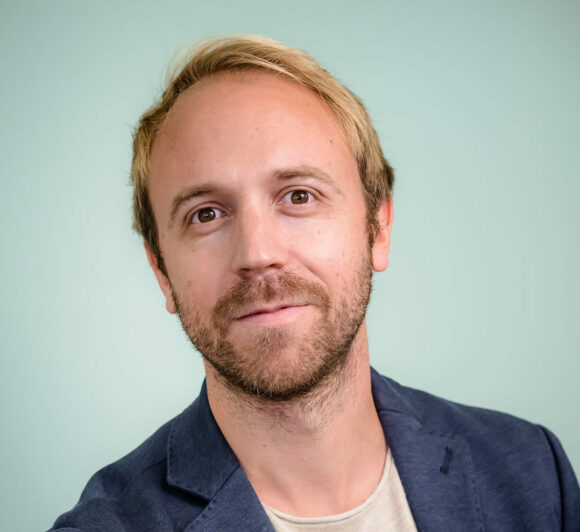Share this post:

Toulouse, France & Salem, MA, USA, November 8, 2021 – Genoskin, a biotechnology company that provides transformative platforms and tools leveraging live ex vivo human skin to test therapeutic and non-therapeutic products, today announces the appointment of Dr Nicolas Gaudenzio as Chief Scientific Officer (CSO), starting in November.
Dr Gaudenzio is a world-renowned researcher and expert in immunology and allergic skin inflammation. He is also principal investigator and leader of a research group at the Infinity Institute (Toulouse Institute for Infectious and Inflammatory Diseases, France), which focuses on the neuronal regulation of immune response. Nicolas will structure and lead Genoskin’s existing R&D team in immunology and data-oriented innovations, supporting the development of new offers and establishing the company’s long-term scientific strategy. Dr Gaudenzio has worked with Genoskin as a senior consultant since the end of 2019.
Dr Gaudenzio completed his PhD in 2012 at the University of Toulouse, France, and holds a doctorate in immunology. Following his post-doctorate at the Department of Pathology at Stanford University (CA, USA), he now heads an Inserm cross-disciplinary research group, which was awarded a Starting Grant from the European Research Council (ERC) in 2018.
Dr Gaudenzio’s work has been published in prestigious scientific journals such as Nature Immunology, Nature Medicine, Nature Communications and the Journal of Allergy and Clinical Immunology. He is a member of the European Academy of Allergy and Clinical Immunology (EAACI) and the French Society for Immunology (SFI).
Pascal Descargues, Ph.D., CEO of Genoskin said: “I’m excited to welcome Nicolas Gaudenzio as our CSO; his appointment marks the beginning of our shift into new activities, from providing live ex vivo human skin models to the dermo-cosmetics industry to guiding major pharmaceutical clients through the drug development process with human skin as a reliable tool to generate relevant human data. Nicolas will lead our growing R&D department in this new direction; focusing on human immunology to develop better solutions for safer and faster development of therapeutics. We are looking forward to expanding our expertise in immunology, which started this year with the launch of our ISR platform, the first ex vivo human skin platform to study injection site reactions.”
New CSO Nicolas Gaudenzio added: “Joining Genoskin is a thrilling adventure. Together with the company, I’ll be able to bring cutting-edge innovative solutions to the market and help researchers to accelerate their drug development projects globally. I’m really looking forward to the future with Genoskin and to working on the exciting projects in its pipeline.”
Nicolas Fazilleau, director of Infinity at Inserm said: “The fact that Nicolas Gaudenzio has become the CSO at Genoskin, whilst continuing with his international research team at Infinity, illustrates all of our dynamism and efforts to establish strong and durable interactions between academia and private research organizations, to boost drug development.”
———–
Notes to editors:
- Established in January 2021, Infinity – The Toulouse Institute for Infectious and Inflammatory Diseases – is a leading research institute providing a productive scientific environment that is structured along three main themes: immunology, inflammatory and infectious diseases. Infinity is affiliated with Inserm, French National Center for Scientific Research (CNRS) and Paul Sabatier University of Toulouse
About Genoskin
 Genoskin provides transformative platforms and tools leveraging live ex vivo human skin to test therapeutic and non-therapeutic products and generate actionable first-in-human data to secure drug development. Genoskin uses real human skin tissue, prepared from donated surgical leftovers, which are ethically sourced from plastic surgeries, in combination with innovative technologies to maintain the samples’ viability, immunocompetency and functionality in a ready-to-use ex vivo culture system. Genoskin was founded in 2011, as a spin-off of the French National Center for Scientific Research (CNRS) and the Paul Sabatier University in Toulouse, France.
Genoskin provides transformative platforms and tools leveraging live ex vivo human skin to test therapeutic and non-therapeutic products and generate actionable first-in-human data to secure drug development. Genoskin uses real human skin tissue, prepared from donated surgical leftovers, which are ethically sourced from plastic surgeries, in combination with innovative technologies to maintain the samples’ viability, immunocompetency and functionality in a ready-to-use ex vivo culture system. Genoskin was founded in 2011, as a spin-off of the French National Center for Scientific Research (CNRS) and the Paul Sabatier University in Toulouse, France.



